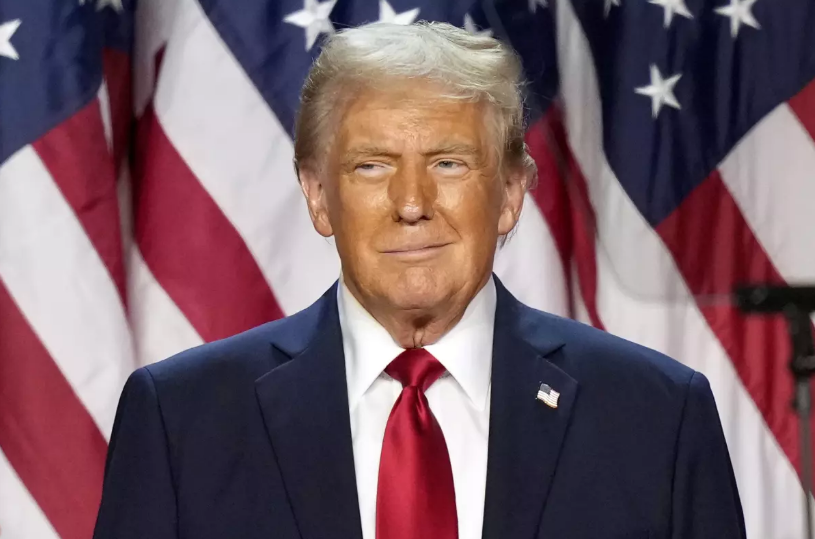In an ever-evolving financial landscape, cryptocurrencies continue to challenge traditional regulatory frameworks, prompting dramatic legislative shifts. Among recent developments is a groundbreaking moment in U.S. financial policy as President Donald Trump nullified a controversial IRS rule affecting decentralized finance (DeFi) platforms. This move reflects ongoing efforts to align legislative measures with the unique characteristics of digital technologies, affecting how crypto markets are governed.
IRS Rule Overturned: A Landmark in Cryptocurrency Legislation
Decisive Congressional Actions Against IRS Decentralized Exchange Regulations
Recently, President Trump signed a law reversing an IRS regulation from the final days of the Biden administration. This regulation had expanded the definition of “broker” to include decentralized finance exchanges, sparking significant debate. Through the Congressional Review Act, both the House and Senate voted to repeal this rule, showcasing the power of legislative oversight in adapting financial regulations to suit technological advancements.
Cryptocurrency advocates criticized the original regulation, arguing that it placed unrealistic compliance burdens on DeFi platforms. These platforms, unlike traditional exchanges such as Coinbase or Kraken, facilitate direct peer-to-peer transactions without intermediaries. As a result, they inherently lack access to user information, making compliance with traditional broker reporting standards technically impossible.
Implications for DeFi Platforms and Crypto Legislation
The IRS’s initial framework emerged from the 2021 bipartisan Infrastructure Investment and Jobs Act. It demanded that digital asset brokers report transactions for tax purposes. For conventional exchanges, this model fits as they mediate between buyers and sellers. However, for DeFi platforms, which operate autonomously on blockchain networks, such a requirement posed significant operational challenges.
Crypto industry representatives highlighted this disparity, asserting that the decentralized nature of DeFi systems makes conformity with IRS demands unfeasible. Consequently, the legislative reversal comes as a significant triumph for the crypto community, removing a major compliance roadblock that could have hindered the growth of decentralized technologies.
President Trump’s Commitment to a Crypto-Friendly Environment
President Trump’s action aligns with his campaign promises to support the cryptocurrency sector. His administration emphasized creating a conducive environment for digital assets, thereby aiding the industry’s growth and evolution. This decision underlines his commitment to fostering innovation and maintaining the U.S. as a leader in the crypto market.
Ongoing Challenges in Cryptocurrency Tax Compliance
The IRS’s attempt to impose strict reporting requirements was a step toward curbing tax evasion in the rapidly expanding digital asset market. Nevertheless, the complexities of enforcing such measures on decentralized networks present substantial challenges. The government’s reversal highlights the ongoing struggle to balance regulatory oversight with the practical realities of emerging financial technologies.
As the crypto sector continues to evolve, the landscape of financial regulation will need constant adaptation to maintain relevance and efficiency. The recent legislative changes signify a step toward reconciling technological progress with effective governance.
What Lies Ahead for Cryptocurrency Regulation?
The White House has not yet indicated what other measures might be considered to ensure tax compliance in the digital asset sphere. The ongoing dialogue between policymakers and industry stakeholders will likely shape future strategies to address these complex issues.
### FAQs
Why was the IRS rule on DeFi platforms controversial?
The rule was controversial because it imposed broker reporting requirements on DeFi platforms that operate without intermediaries, making compliance technically impossible due to their architecture.
What does this legislative change mean for DeFi platforms?
The repeal of the IRS rule eliminates a major compliance hurdle for DeFi platforms, allowing them to continue operating without the unrealistic demands initially imposed by the rule.
How does this decision affect the U.S. crypto market?
By removing these compliance burdens, the decision supports the growth of the DeFi sector, potentially enhancing the U.S.’s position as a leading hub for cryptocurrency innovation.
What can we expect in future cryptocurrency tax regulations?
While this decision marks progress, ongoing discussions between regulators and industry players will likely lead to new measures that balance tax compliance with the unique nature of decentralized technologies.

